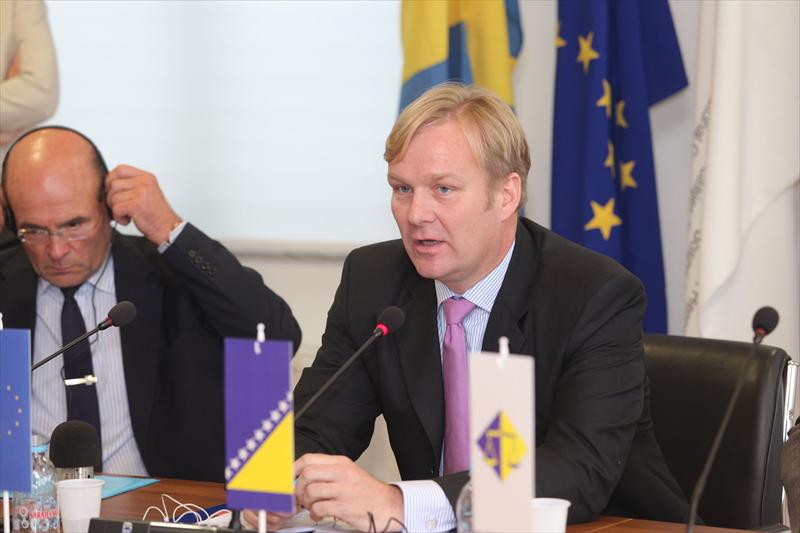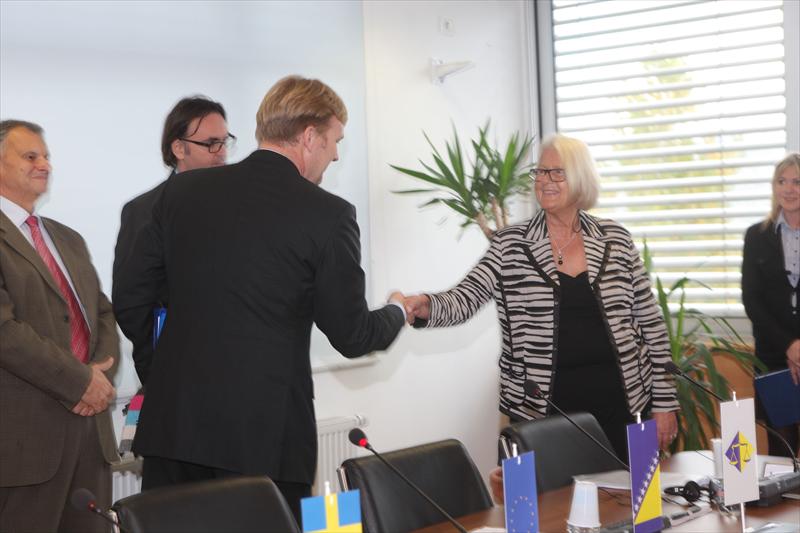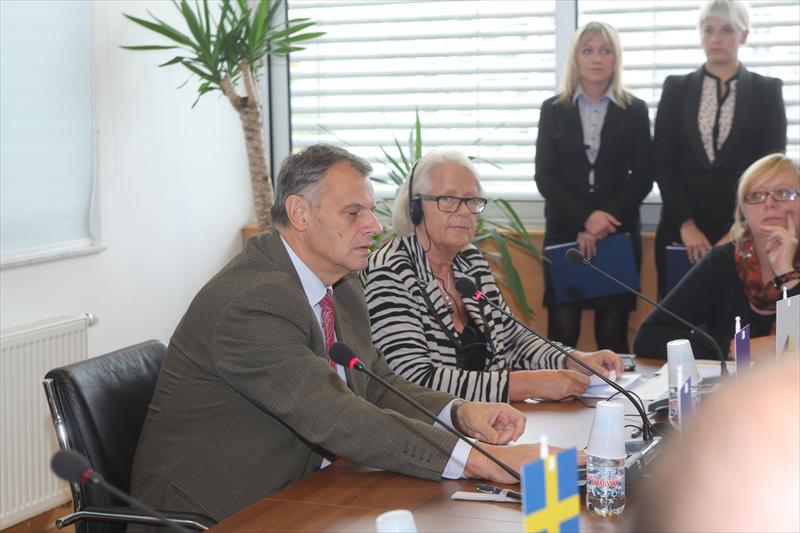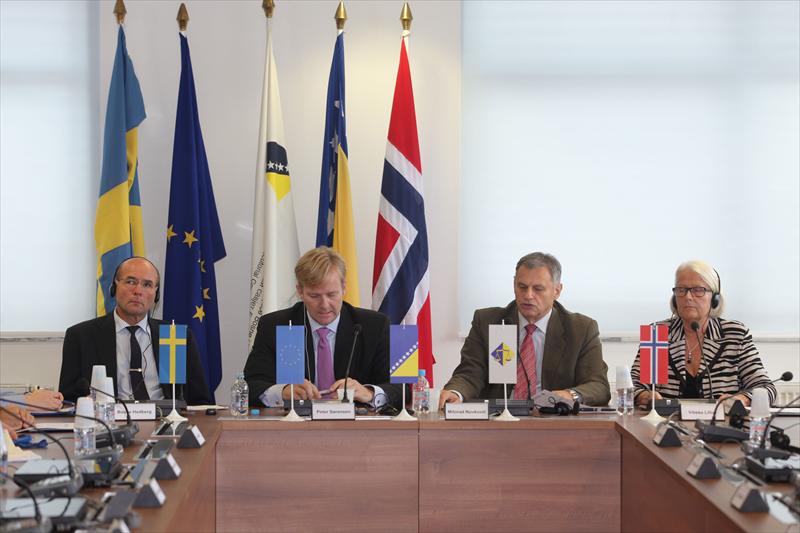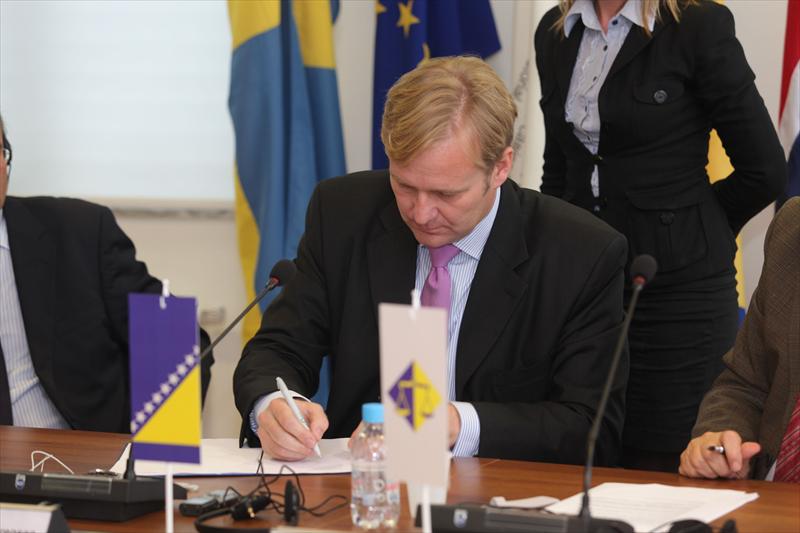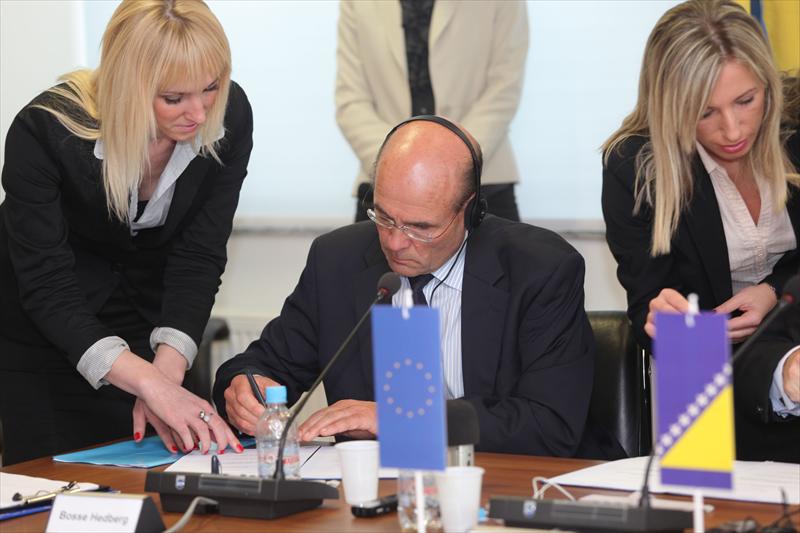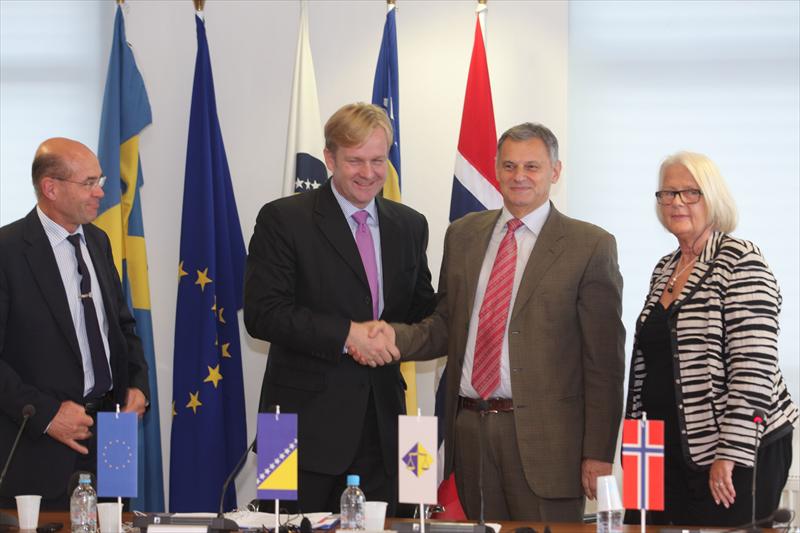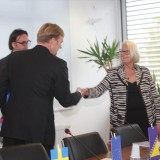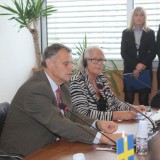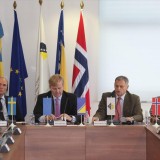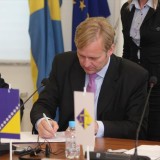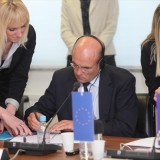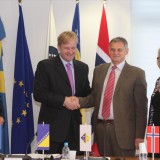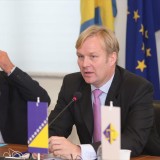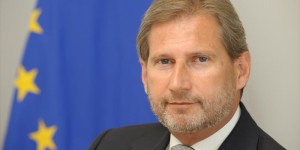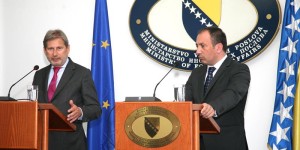Speech by Ambassador Peter Sorensen, Head of the Delegation of the European Union to Bosnia and Herzegovina and the EU Special Representative, on the occasion of the Signing Ceremony (HJPC/EU/SE/NO) on Judicial Co-operation and on the EU Grant to the HJPC “Strengthening the Judiciary in Bosnia and Herzegovina”
President Novkovic, Ladies and Gentlemen, Excellencies,
It is a great pleasure for me to be here today for this occasion. Let me say that the functioning democratic systems of Europe and indeed beyond are characterised across the board by a system of separation of powers between the executive, legislative and the judiciary. They ensure that no branch within the constitutional system of a country exercises undemocratic power and that the rule of law prevails for all.
Bosnia and Herzegovina’s judiciary is one of the three pillars upholding its democracy. And for this pillar to be solid, the judiciary must be efficient, credible, accountable and of course, independent. There is no choice in this matter. It is simply essential if citizens want to live in a country where their rights are protected and their interests are preserved.
An efficient, credible, accountable and independent judiciary is crucial if Bosnia and Herzegovina wants to tackle not only the 2.5 million first instance cases but also the backlog of 1300 war crime cases, and indeed tackle the perceived corruption putting the country in its 91st place in the ranking of Transparency International. It is also crucial if you want to grow your economy – because no investor will risk their capital here if they think that contracts will not be enforced and if they think justice in Bosnia and Herzegovina is a gamble rather a certainty.
Recent Progress Reports of the European Commission have clearly stated that a great deal more has to be done to cement the judicial pillar solidly in Bosnia and Herzegovina’s democratic structure. What should be done and how this should be done – has been part of the series of discussions Brussels has held with Bosnia and Herzegovina under the Structured Dialogue on Justice for the past year.
Within this dialogue, the EU together with the judges, prosecutors and the ministers of justice of this country seek to answer three questions.
First, how the judiciary can be made more independent, accountable, and credible? Second, how can EU standards and best practices be transposed and implemented both to help immediately but also to achieve progress on the EU integration road? And finally, how can this be adapted to the realities of the country and its constitutional set up?
The Structured dialogue is therefore the right forum through which any initiatives to reform the judiciary should be channelled.
Consolidating the appointment authority over the Entity judiciaries and strengthening the independence of the judiciary throughout BiH is not something new for the European Commission to focus on. Already in the 2003 they identified this in their Report when they looked at Bosnia and Herzegovina’s preparedness to negotiate a Stabilisation and Association Agreement.
As I said it is therefore something that we have been looking for quite some years and will continue to do so.
Today’s event shall therefore be seen for what it is, namely a result of the European Union’s support to reform a judicial systems across all jurisdictions in this country. The Cooperation Agreement we will sign with the HJPC, and the Kingdoms of Norway and Sweden is not only about our united wish to increase judicial efficiency and to further reduce the backlog of civil and criminal cases. It is also a reflection of our joint commitment to the judiciary of this country, and of our support to the HJPC in leading the reform process for judicial efficiency.
I will sign a 1 million euro Agreement with the HJPC this morning. This is a continuation of the European Union’s assistance to justice sector reform (of around 30 Million until now) and is in line with the agreement I just mentioned. The principal objective of course is that the backlog and we need to reduce that, we been saying that many times and will keep saying until it’s done. This will ensure that the citizens of this country see justice served in an independent, timely and efficient manner. This progress should also enable courts and prosecutors to be fully prepared for the huge responsibility of ensuring that the EU acquis is applied in law.
With extensive financial support form the International community, and in line with recommendations from the Structured dialogue, the HJPC has effectively and professionally already started to address some of the key challenges the courts and prosecutor offices in BiH are facing. We have seen thanks to their consistent effort and donor support, progress in reducing the significant backlog of cases as well as allowing for greater on line access to case related events, and legal acts. This is a long term process and more needs to be done. Amongst its top priorities the Structured dialogue seeks to address the Law on the HJPC which aims to strengthen its independence as well as to increase the accountability of judges and prosecutors.
As Bosnia and Herzegovina’s politicians have reiterated, this country needs to move forward on its road towards EU accession. Progress on the rule of law has been recognised as a central priority to achieve this. Upholding and strengthening an independent judiciary is vital to the rule of law. And a functioning, independent, effective HJPC is essential to this judiciary.
Let me therefore conclude by saying, it is a great pleasure to be here today to once more reiterate our continued support to the mandate of this institution and the professional work of all its staff.
Thank you very much

